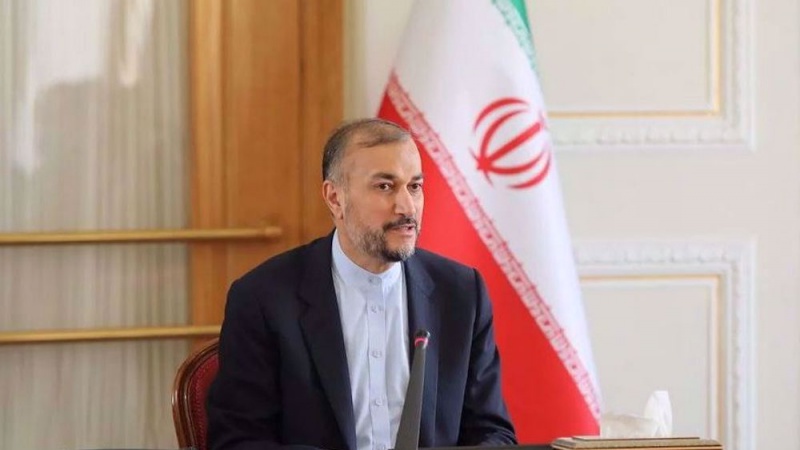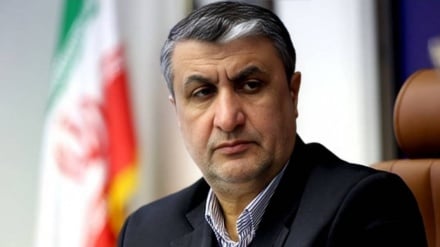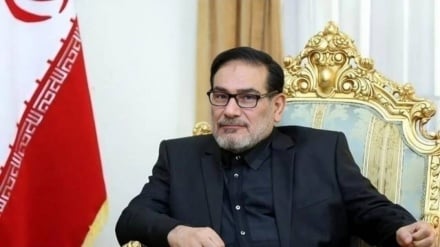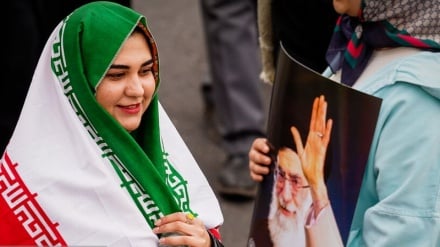Iran's full SCO membership, potential BRICS accession will counter unilateralism, sanctions: FM
Foreign Minister says the country’s full membership in the Shanghai Cooperation Organization (SCO) and potential accession to the BRICS group of emerging economies will promote multilateralism and counter unilateral policies, including sanctions.
In a televised interview on Tuesday, Hossein Amir-Abdollahian said Iran’s full membership in the SCO was among the achievements of President Seyyed Ebrahim Raeisi administration’s foreign policy and will improve people’s livelihood.
At the end of the 23rd virtual summit of the SCO Council of Heads of States on July 4, Iran gained full membership of the world’s largest regional organization in terms of geographic scope and population. Iran’s national flag was raised at the bloc’s Secretariat compound in Beijing on July 5.
Amir-Abdollahian pointed to the outcomes of Iran’s accession to the SCO and said Iran will enjoy all the facilities available to the Shanghai Cooperation Organization member states in the economic and commercial domains.
The chief Iranian diplomat, however, emphasized that the SCO is not just an organization that focuses only on economic issues, but it also includes cooperation in the fields of security, culture, military, anti-terror fight, science and technology.
Pointing to Iran’s potential accession to the BRICS, Amir-Abdollahian said the President has been officially invited to take part in the powerful bloc’s 15th summit in South Africa from 22–24 August 2023.
He added that Iran’s potential membership in the five-state bloc would provide the country with an opportunity to make use of great capacities from Africa to Asia, Latin America and other countries.
‘Nothing can hinder development of Iran-Egypt cooperation’
Amir-Abdollahian also pointed to numerous commonalities between Iran and Egypt, saying the two countries are drawing up plans to improve relations.
“We set no limitation to the expansion of all-out cooperation with Egypt,” he stated.
He then pointed out that both sides have already sent their ambassadors to their respective capitals and started security talks.
Egypt severed its diplomatic relations with Iran in 1980 after it welcomed the deposed Pahlavi ruler of Iran and also recognized the apartheid Israeli regime.
Iran-Saudi detente to secure mutual interests: Amir-Abdollahian
Referring to the opening of a new chapter in Iran-Saudi Arabia relations, Amir-Abdollahian said the Saudi rulers have come to the conclusion that ties between the two countries should be restored based on neighborliness and mutual respect.
Restoration of ties between Tehran and Riyadh would secure mutual interests and result in positive outcomes for the entire region, he added.
He noted that Iran and Saudi Arabia have different views but share a stance on some issues.
The top diplomat dismissed the notion that Tehran and Riyadh have reached just an economic agreement, explaining that the two sides agreed to improve mutual relations and investment through sustainable economic cooperation despite different political views in some areas.
‘Iran will never cross red lines in talks with US’
Elsewhere in his wide-ranging interview, the FM said Iran would continue the path of negotiations with the United States and European countries but would never cross its red lines.
Amir-Abdollahian added that Iran is making efforts to tackle the impacts of unilateral US sanctions.
Despite the sanctions, he noted, Iran succeeded in increasing the value of its trade exchanges with its neighbors to more than $90 billion.
Tehran has also raised its economic exchanges with European countries in spite of certain political challenges, he said.
Amir-Abdollahian added that Iran has maintained its ties with Britain, Germany and France – the three European parties to the 2015 nuclear deal – but argued that Europe is not confined only to these three countries.
“There are other large sectors in Europe that we interact with without any challenge,” the FM said.
FM reiterates call for inclusive government in Afghanistan
Amir-Abdollahian also said any development in Afghanistan can have impacts on Iran’s security, given 900 kilometers of common border.
“Any instability in Afghanistan has a direct impact on our border areas,” he said, describing the massive influx of Afghan refugees into Iran as one of the Islamic Republic’s “serious” challenges.
He warned of the spread of terrorism in Afghanistan and said, “We have explicitly announced that no group in Afghanistan has been able so far to run a stable political system without the participation of all ethnic groups. Therefore the formation of an inclusive government is a necessity.”
Iran does not recognize the Taliban in the absence of an inclusive Afghan government, the minister asserted.
SS



